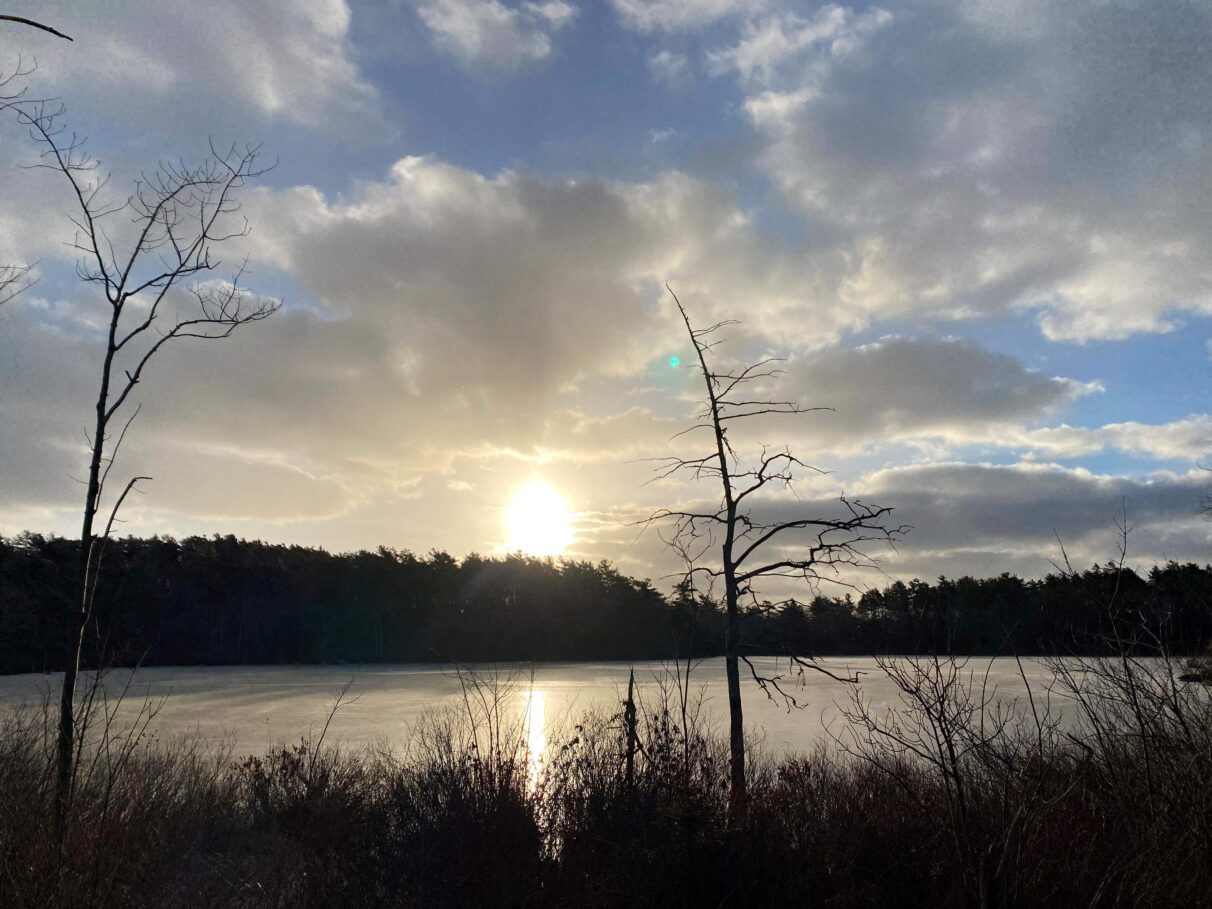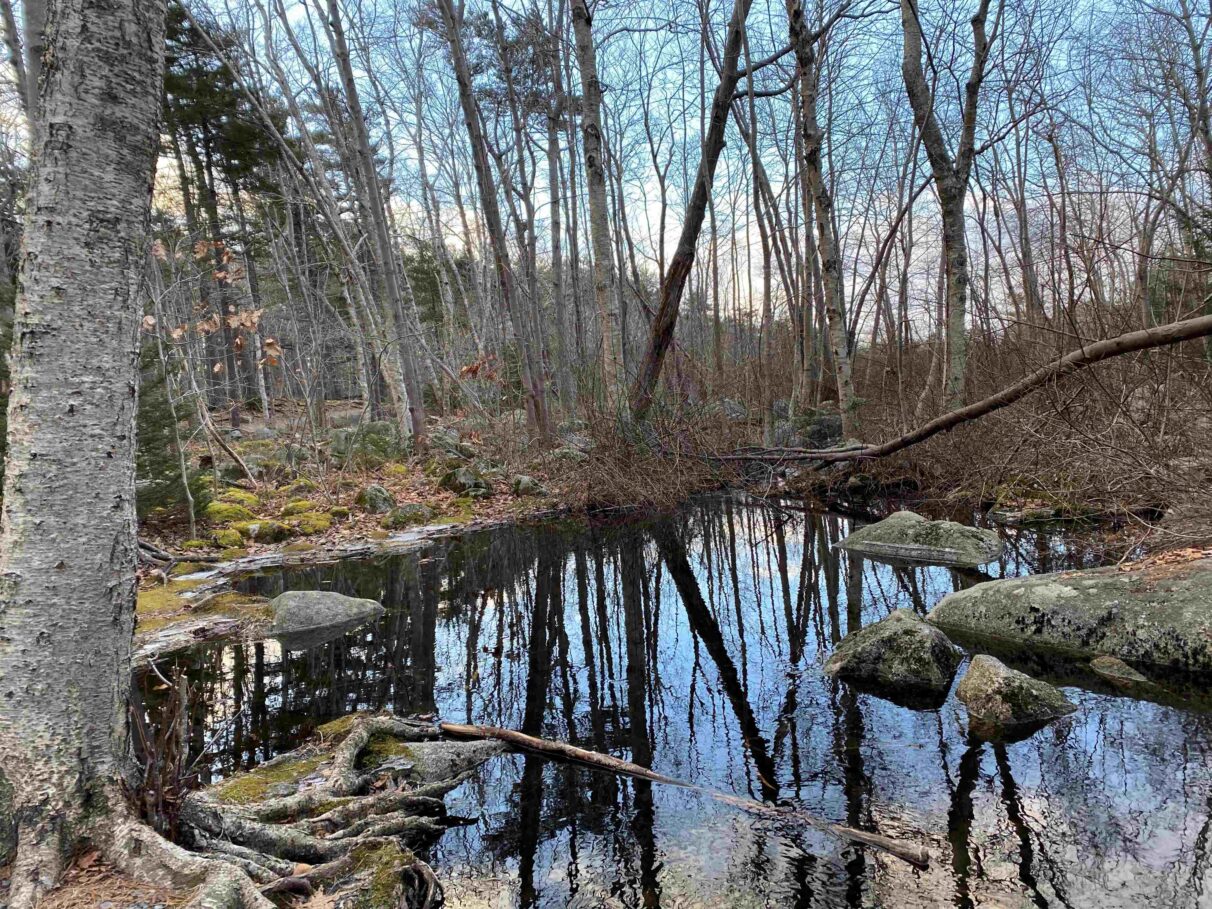City on thin ice with skaters
HRM kills ice-testing program on city's lakes

caption
Caron and Bob Palmer have lived near Frog Pond for three years. They test the edges of the pond every day in hopes of getting out to skate.At Frog Pond trail, west of Halifax’s Northwest Arm, locals are out for their morning walks, sharing friendly greetings as they cross paths. It’s a cold winter day, but instead of the familiar sound of snow crunching under their feet, all that can be heard is the scattering of gravel being tossed up with every step.
Caron and Bob Palmer walk here almost every day. They have been eagerly testing the pond the trail encircles, hoping that with the colder weather they may soon be able to go for a skate.
Whether it is safe to do so will now be up to them to decide. That’s because Halifax municipality announced on Wednesday that it has opted to stop testing ice thickness.
“There’s nothing more fun than just skating forever,” said Bob. “I grew up that way as a kid.” In the three years that the Palmers have lived in the area, they’ve only caught good ice once. That was two years ago, but Caron says the memory sticks in their minds, and they’ve been checking the ice every day hoping to experience it again.

caption
The sun rises over Frog Pond, on Halifax’s Purcells Cove Road.Kris Mapp and Melissa Pazmino live near Frog Pond. They were shocked and disappointed to hear about the city’s decision, saying it was an important service that ensured community safety.
“I won’t touch it unless I know that the ice is safe,” says Kris, who grew up in the area. But he says that without this service, people are taking it upon themselves to check if the ice is thick enough for skating. One couple, he said, was testing the ice simply by walking on it.
The municipality anticipated that people will continue to skate on lakes and encourages people to refer to guidelines released by the Canadian Red Cross when out on the ice. Along with explaining how to check ice thickness, the guidelines warn that the ice should be at least 15 centimetres thick for “skating, walking or skiing in small groups,” 20 centimetres for activities with larger groups, and 25 centimetres when using snowmobiles or ATVs on the ice.
Ceilidh McMeekin, who regularly walks her dog Robie in the park, says she’s from a small town in Ontario where community members relied on each other to determine whether it was safe to skate on the local pond.
She grew up figure skating but says she hasn’t done so at Frog Pond because it feels too risky. She thinks the municipality should offer more accessible programming to encourage and inspire Haligonians to get out in the winter months.
“You really have to go hunting for that information,” she says, “sometimes in the winter you don’t even know what you’re looking for.”

caption
Robie the dog visits the Frog Pond trail with his owner Ceilidh McMeekin about three times a week. McMeekin grew up pond skating in her home town, but hasn’t risked it at Frog Pond.The city’s website explains the decision was made due to the change in climate patterns. As outdoor skating is becoming less and less of a reality, the service, according to the city, is “no longer feasible.”
Kris Mapp says that as a kid you could often play hockey on Frog Pond. But he says that skating has “dropped dramatically” as the climate continues to change. And as fewer people now have a chance to catch the ice on solid days, Kris expects skaters are more likely to rely on the municipality rather than their community to know if it’s safe to skate.
“It’s a catch-22 … although ponds and lakes aren’t freezing over as often, it’s still happening.” He says that testing should continue and would like to see announcements to know whether the conditions are good for pond skating.
The Palmers understand the city’s decision. They said they never knew the city monitored the ice’s thickness and were surprised to find out it had. Caron says it would be great to have a guarantee that the ice is safe to skate on, but she understands the challenges that might come with trying to monitor the ice.
“I believe ultimately … we just have to be responsible for our own safety.”
If the ice continues to be unreliable, the Palmers say they will go skate at the Emera Oval on the Halifax Common.
“We prefer the natural environment but … the oval is a great bonus for the city,” said Caron.

caption
Along the trail, water that connects to the pond shows little signs of freezing.But Anders Hayden, an associate professor at Dalhousie whose research addresses the politics of climate change, says that using the oval will increasingly come with tradeoffs.
The refrigeration system at the outdoor rink, he says, means that Haligonians can continue to skate. But Hayden points to the amount of energy required to keep it refrigerated and wonders whether it will remain a viable alternative to pond skating.
About the author
Andie Mollins
Andie is from Shediac, a small but lively beach town in New Brunswick. She studied history and sociology at the University of New Brunswick and...
